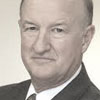How to Predict an Economic Collapse
Well, I think you have to look at it in the context of how it all got started and you look back at the financial crisis of 2008, and the Austrian School would say that was inevitable. We may not have been prescient in picking the exact top or when it was gonna happen. Certain Austrian economists did do a good job of selecting.
And I talk about some of those people. The Austrian School, Mises and Hayek for example, predicted the 1929 crash and the Great Depression, and got quite a bit of notoriety as a result of that. And in 2008, a number of economists like Peter Shiff, who uses Austrian economics, or Harry Veryser, who has written a book recently – he’s an economist at the University of Detroit Mercy, who used some Austrian tools on the interest rates and money supply figures to figure out when the top was being reached – recognized that the government, the Federal Reserve in particular, but also the federal government encouraging excessive home ownership created an elixir, a combination that was – it blew up on us, to create this artificial boom, followed by collapse. So the Keynesians and the Monetarists, the standard neoclassical model was inject liquidity.
You have this collapse. Inject liquidity. Keep it from turning into a Great Depression. And they were successful in doing that, but it’s been a very slow recovery, and the – most of the new money that’s being created – see the Ludwig von Mises always said who gets the money first? You have this new money coming in, the easy money; where is it going?
And it appears it’s going into the stock market, and it’s creating this artificial boom in the recovery, and it’s largely going into the stock markets, gone into treasuries. It’s gone into gold and silver to some extent, although the last couple of years haven’t been very good on gold, but there has been a renewed interest in gold at these lower prices. So the Austrians are looking at that, saying this is an artificial bubble. You can play that bubble. I’ve been fully invested. But at some point, this market is going to top out and probably when interest rates rise sharply, this should be a critical factor as interest rates is something the Austrian School really looks at very closely.
We look at the money supply, which is what the Chicago School does. They have a fairly simple system. But the Austrian School has a little more sophisticated system, and we would argue, yes, it’s artificial; we’ve been playing that market, but at some point, we’ve got to use our stop orders. We’ve got to protect our profits, and we have to recognize that there could be another crash, another bear market sometime down in the future. I’m not predicting it any time right away. Yes, we’ve had a five-year recovery in the market. But until interest rates really spike, I just don’t think you’re going to see an end to it.


Comments: